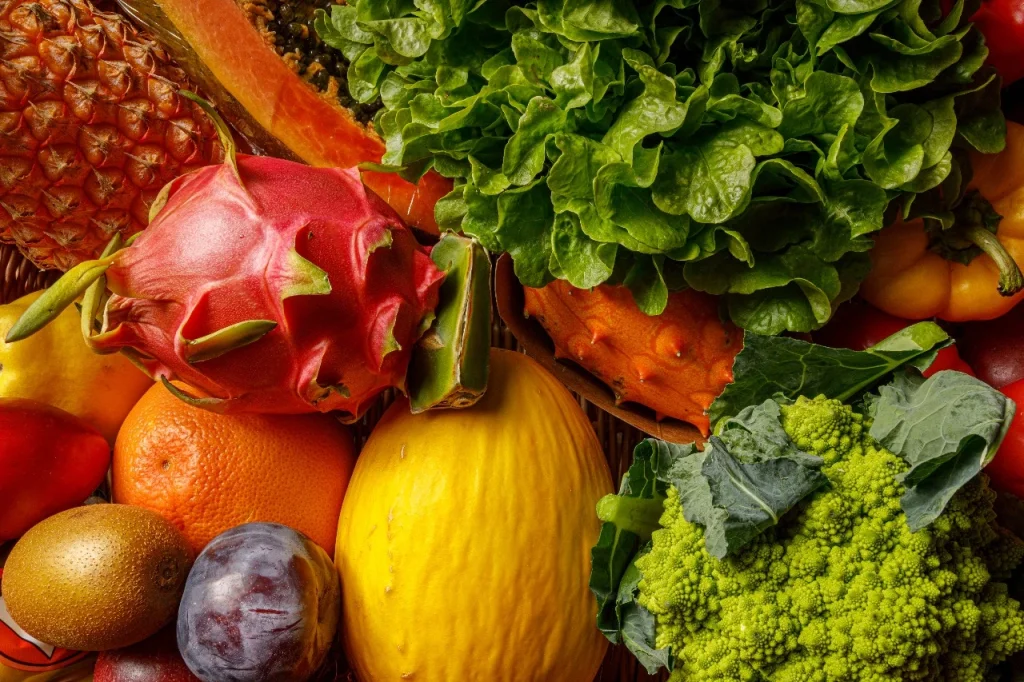

The lights, laughter, and laddoos may have faded, but the after-effects of Diwali often linger — a sluggish metabolism, bloating, irregular digestion, and that not-so-pleasant post-festive heaviness.
While Diwali brings immense joy, it also brings along its delicious temptations — from boxes of mithai to crispy namkeen and endless festive feasts. It’s no wonder many of us feel the need to “detox” once the celebrations end.
But here’s the truth: your body isn’t a clogged drain that needs a harsh cleanse. You don’t need to punish yourself with juice fasts or extreme detox diets. What your body truly needs after Diwali is nourishment, hydration, and gentle balance.
Let’s explore how to help your body bounce back naturally — without deprivation — by focusing on five powerful, cleansing foods that support your body’s natural detox process and restore your energy from within.
If there’s one food group your post-Diwali body will thank you for, it’s leafy greens.
Spinach, methi (fenugreek), coriander, and amaranth are loaded with chlorophyll, iron, fibre, and antioxidants that support liver function and digestion.
Add sautéed methi or spinach to your breakfast eggs or poha.
Blend greens with cucumber and mint for a refreshing smoothie.
Start meals with a green salad dressed in lemon and olive oil.
Make a light spinach or amaranth soup for dinner.
Nutritionist’s Tip:
Rotate your greens. Each one brings a unique mix of micronutrients — so keep it colourful and varied.
After nights of sweets and snacks, your liver needs a gentle wake-up call.
A glass of warm lemon water in the morning helps boost hydration, stimulate digestion, and support liver detox.
Squeeze half a lemon into warm water each morning.
Add turmeric, cinnamon, or ginger for anti-inflammatory benefits.
Skip honey or sugar — the goal is light, clean hydration.
Nutritionist’s Tip:
If you have acidity or gastritis, have lemon water post-breakfast or try warm water with mint instead.
After days of rich foods, papaya is like a warm hug for your digestive system.
This tropical fruit contains papain, a natural enzyme that supports protein digestion and relieves bloating.
Have a bowl of papaya mid-morning or post-breakfast.
Add soaked chia seeds for fibre and satiety.
Blend papaya with yogurt for a gut-friendly smoothie.
Nutritionist’s Tip:
Enjoy papaya on an empty or light stomach — pairing it with fried food can reduce its digestive benefits.
Beautifully vibrant and deeply nourishing, beetroot is one of nature’s best liver-supporting foods.
Its high levels of betalains and nitrates enhance liver enzyme activity, improve circulation, and help reduce oxidative stress.
Add grated beetroot to salads with lemon and rock salt.
Blend beetroot, carrot, and ginger into a morning juice.
Roast beet slices with herbs for a crunchy, colourful snack.
Nutritionist’s Tip:
If you have kidney stones or high uric acid, consume beets in moderation due to their oxalate content.
After days of sweets, namkeen, and perhaps less water, your body craves electrolytes — and coconut water is nature’s best answer.
Sip a glass mid-morning or after your walk.
Add sabja (basil) seeds for a cooling, digestive twist.
Avoid mixing it with milk or heavy meals — it shines best solo.
Nutritionist’s Tip:
Choose fresh coconut water over bottled versions, which often contain added sugars or preservatives.
Nutrition can’t work in isolation — how you move, rest, and live matters just as much.
Here are gentle habits to help your system find its natural rhythm again:
Eat at consistent times each day. Your digestive system thrives on regularity.
Spacing meals 3–4 hours apart gives your gut time to rest and reset.
Start with 30–40 minutes of walking, yoga, or light dancing.
Movement aids circulation, improves digestion, and uplifts mood.
After late festive nights, your body needs recovery time.
Aim for 7–8 hours of sleep — your liver and hormones will thank you.
Keep a water bottle handy. Herbal teas like ginger, fennel, or dandelion further support liver and gut health.
Slow down, chew thoroughly, and stop when 80% full.
Your body digests better when you eat with awareness, not guilt.
Many people equate detox with deprivation — no carbs, no sugar, no fun. But that’s not balance.
A truly effective post-Diwali detox is about nourishment, not punishment.
It’s about choosing whole, real foods that help your body do what it already knows how to do best — heal.
Remember, the goal isn’t to “undo” Diwali — it’s to restore harmony gently.
Morning:
Warm lemon water with turmeric
Vegetable poha with green chutney
Mid-Morning:
A bowl of papaya or apple
One glass of fresh coconut water
Lunch:
Brown rice or multigrain roti
Moong dal or rajma
Stir-fried spinach and beet salad
Curd with roasted cumin
Evening:
Herbal tea with roasted chana or nuts
Dinner:
Clear vegetable soup or khichdi
Sautéed methi (fenugreek seeds) or lauki (bottle gourd)
Herbal infusion (ginger or fennel/seeds) before bed
This isn’t a diet — it’s a gentle reset. It gives your body the space and nutrition to rebalance naturally, without stress or restriction.
A post-Diwali detox isn’t about guilt — it’s about gratitude for your body and everything it does for you.
You don’t need to “fix” it after celebrating; you just need to nourish it back to balance.
So instead of saying, “No more sweets ever again,” tell yourself — “Next time, I’ll enjoy mindfully and care for my body after.”
Because true wellness isn’t about perfection.
It’s about gentle awareness, small resets, and consistent love — for your body, mind, and spirit
Not in the extreme sense. Your body already detoxifies itself naturally through the liver, kidneys, and skin. What you need post-Diwali isn’t a cleanse — it’s gentle support. When you eat nourishing foods, stay hydrated, and sleep well, you’re simply helping your body do what it’s already built to do — heal and rebalance.
Juices can be refreshing, but relying only on them can backfire. Most store-bought “detox” juices are high in sugar and low in fibre — both of which slow your metabolism. Instead, focus on whole fruits, vegetables, and light meals. Think lemon water in the morning, a green salad for lunch, and a vegetable soup for dinner — real food, real results.
Most people start feeling lighter and more energetic within 3–5 days of eating clean, staying hydrated, and moving regularly. Remember, recovery is not about rushing — it’s about restoring balance slowly. Even small, consistent steps make a huge difference in how you feel by the end of the week.
If you’ve been feeling unusually bloated, tired, or sluggish; if your skin looks dull; or if your digestion feels “off,” your body is simply asking for a little care. These are signs that your natural detox organs — especially your liver and gut — could use some gentle nourishment.
Absolutely — balance, not restriction, is key. You can enjoy your favourites in smaller portions while prioritizing hydrating, fibre-rich meals. Think of it as adding in more goodness, not cutting out everything you love. That’s how real wellness — and joy — coexist beautifully.



 ×
×

